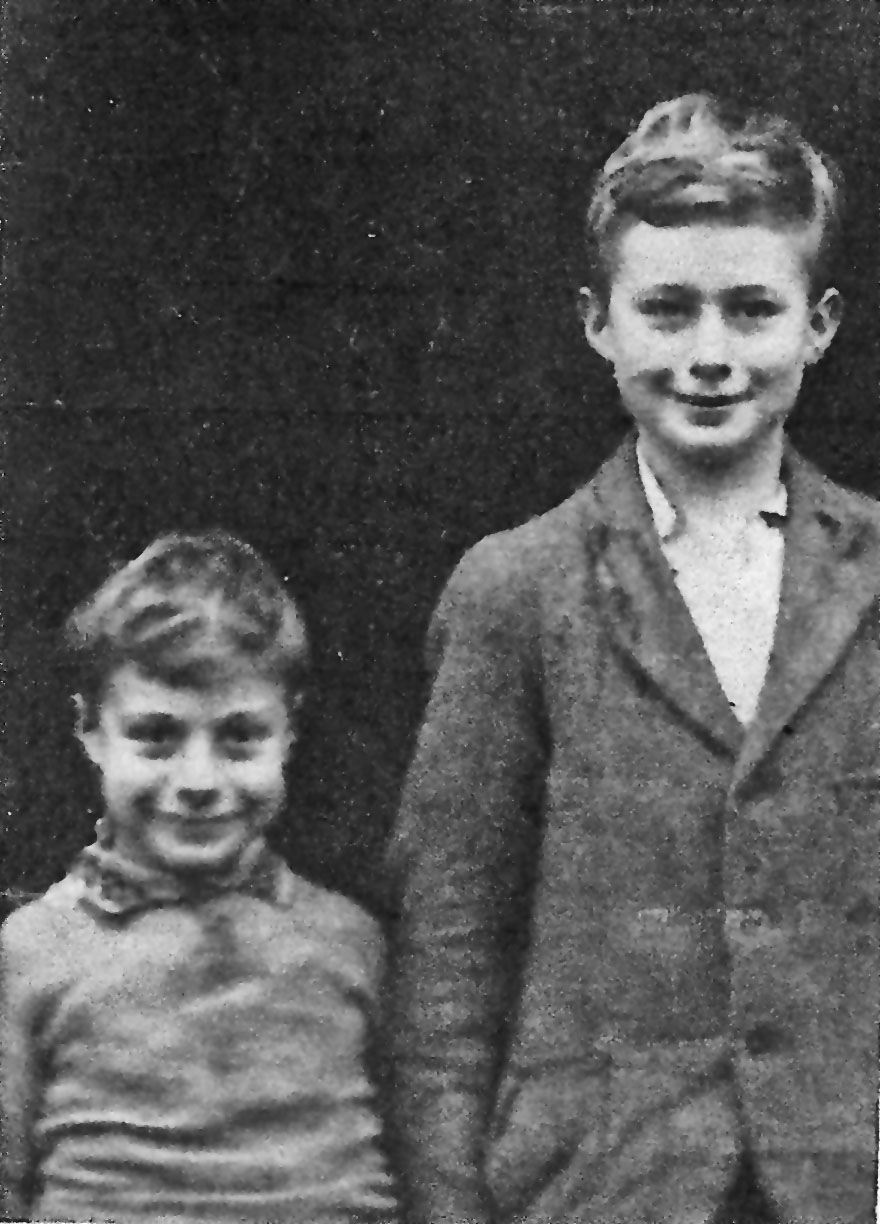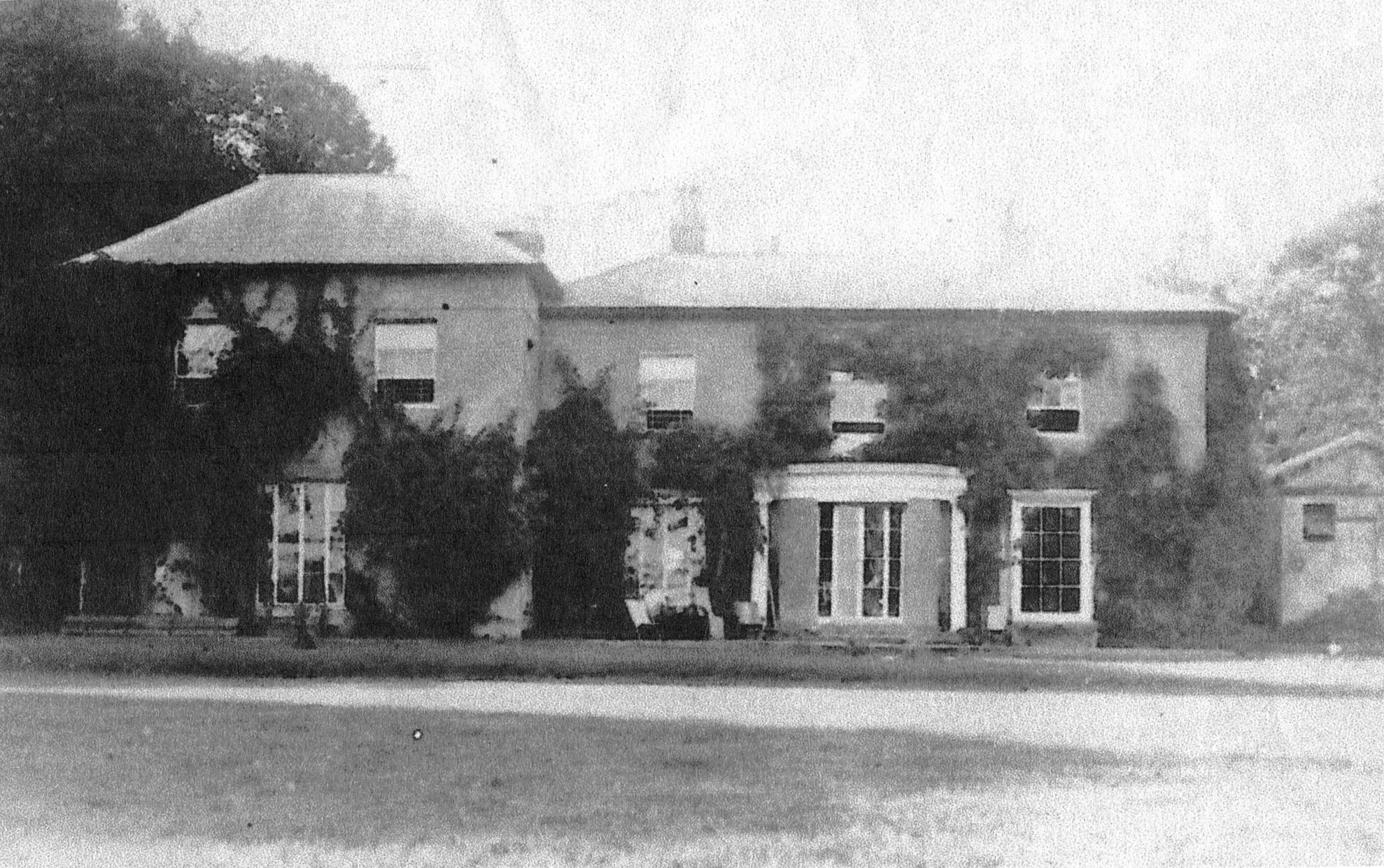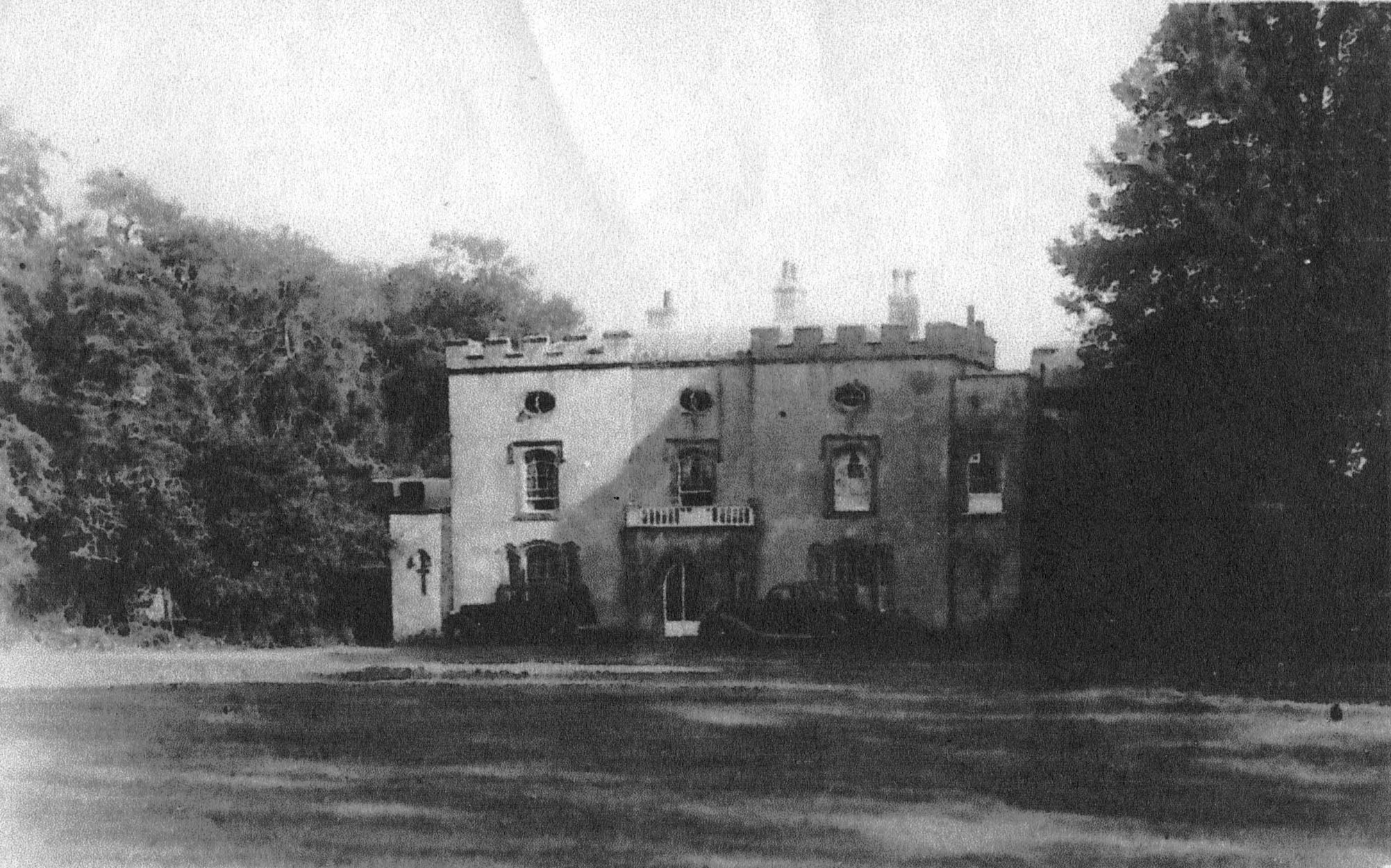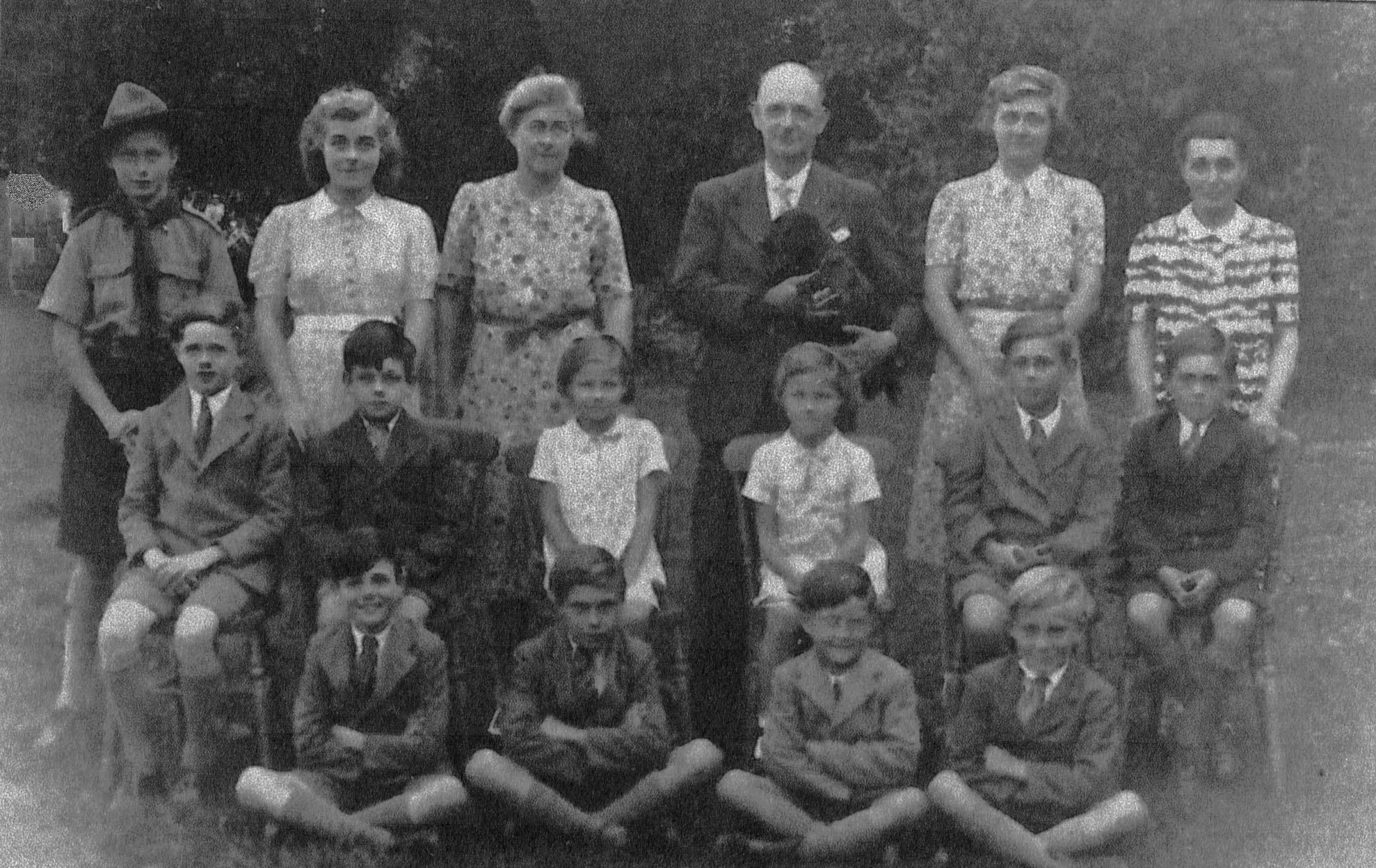 My name is Joseph Thomas Tapner and these are my memories of Pulham, during the war years.
My name is Joseph Thomas Tapner and these are my memories of Pulham, during the war years.
In 1941, together with my younger brother, we were evacuated to The Old Rectory in Pulham. I was 9 years old and my brother was 5.
 The owner of the Rectory was Mr Cecil Balcomb who lived there with his wife and 3 daughters, Peggy, the eldest and twins, Connie and Joan.
Mr Balcombe was a direct descendant of Thomas More, Chancellor of England in the time of Henry the eighth.
The owner of the Rectory was Mr Cecil Balcomb who lived there with his wife and 3 daughters, Peggy, the eldest and twins, Connie and Joan.
Mr Balcombe was a direct descendant of Thomas More, Chancellor of England in the time of Henry the eighth.
The eldest daughter, Peggy married the farmer, Charles Wyatt from Cannings Court farm down the lane and they took over Round Chimneys Farm at Glanvilles Wootton. The former owners were the Churchills, who were landowners in Dorset. John Churchill, of Blenheim fame, was born there in 1650 and the first Sir Winston Churchill in 1620.
 The vicar in 1941 was Mr Stonehouse who lived at the other end of the village. He was subsequently replaced by Mr D. W. Oddie who lived in the Rectory with us.
Mr Oddie was a nice chap who spent quite a long time cutting up logs for the fire. He had bad eyesight and had to squint sideways to read the church lessons. One of his pleasures was reading 'Just William' books by Richmal Crompton. He would purchase each one as they were published.
The vicar in 1941 was Mr Stonehouse who lived at the other end of the village. He was subsequently replaced by Mr D. W. Oddie who lived in the Rectory with us.
Mr Oddie was a nice chap who spent quite a long time cutting up logs for the fire. He had bad eyesight and had to squint sideways to read the church lessons. One of his pleasures was reading 'Just William' books by Richmal Crompton. He would purchase each one as they were published.
My brother, Reginald James Tapner attended the local school in Pulham and I attended a school in Lydlinch which was the village hall (Hooper Hall) renamed the John Rennie School during the war. Our playground was Lydlinch Common.
At the age of 11, I was transferred to Buckland Newton school and spent most of my time in the Headmaster's class (Mr. William Henry Packer). This school was also the village hall and had only three classrooms. The original school building was for the infants or junior pupils.
There were other evacuees, usually about a dozen of us at any one time but children came and went all the time.
We had to attend a Sunday School and I spent the time as the organ blower for years. The organist being a lady known
to us as Miss Ridley. I have a Bible that Mr. Oddie presented to me, inscribed inside the cover "For faithful service as Pulham's wartime organ blower - D. W. Oddie" and also a Hymn Book presented to me by Mr Stonehouse, before he left.
 Also attending Buckland Newton school there were a couple of girls from the village of Pulham, Grace Perris, the daughter of the village shoemaker, Wilfred, who was also a lay preacher. The other girl was called Audrey?
Also attending Buckland Newton school there were a couple of girls from the village of Pulham, Grace Perris, the daughter of the village shoemaker, Wilfred, who was also a lay preacher. The other girl was called Audrey?
After the initial wrench of leaving my parents and moving to the country, I enjoyed the countryside and did not want to return to London. When I did return to my old London School, I was far behind in learning and out of my depth, however I was coming up to 14 and after one term was allowed to leave to find work.
I often think about the soldiers, British and American, who passed through the village in military convoys in the build-up on the South Coast prior to the D-Day landings and wonder just how many were killed.
Group Picture. Back row (left to right) Joseph Tapner, Joan Balcomb, Mrs Balcomb, Mr Balcomb, Connie Balcomb and Mrs Bijou, the housekeeper and cook.
Middle Row. William Stockwell, Frank Smith, two sisters, Derek Dray, Mrs Bijou's son, Tony.
Front Row Patrick Stockwell, Reginald Tapner, unknown , Donald Dray.